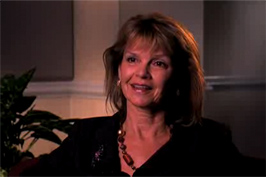Elevating our leadership through more effective listening

Victoria Dinges
Corporate Responsibility Officer
Listen to Victoria lorem ipsum dolor sit amet, consectetur adipisicing elit, sed do eius mod tempor incididunt ut labore et dolore magna aliqua. Ut enim ad minim veniam.
Watch Video In the more than 80 years since Allstate's founding, much has changed — in business and society. One thing however has remained the same: our commitment to our customers, the communities where we live and work and to the larger society we serve.
In the more than 80 years since Allstate's founding, much has changed — in business and society. One thing however has remained the same: our commitment to our customers, the communities where we live and work and to the larger society we serve.
We believe in listening to the voices of the many stakeholders that touch our business so we fully understand their expectations of Allstate when it comes to environmental and sustainability issues, business practices, workplace diversity and driving social change. We work hard to anticipate needs and develop innovative solutions. We set stretch goals, track our progress and evolve strategies and actions to stay current and relevant to the most pressing issues of our time.
To this end, I’m pleased to report we made considerable progress over the past year in many areas that matter most to our stakeholders. We reduced our energy use and overall carbon footprint, strengthened our workplace and supplier diversity performance, and increased the impact of The Allstate Foundation’s domestic violence and teen safe driving signature programs. While we fell short of some targets, including agency owner satisfaction and improving our overall reputation score, we remain committed to evaluating and evolving so that we can achieve our goal of continual improvement.
In 2011, we established key goals in the areas of stakeholder engagement, business practices, social impact and sustainability. Following is an overview of our efforts:
Social Impact
Allstate has a long been a leading advocate for key public policy issues that affect all of our stakeholders and align with our business. This is done through public awareness programs, alliances with other advocates and ongoing research.
This year, we continued our support of domestic violence survivors through The Allstate Foundation. By training staff and creating resources for more than 1,100 programs across the country, we have served more than 100,000 survivors of domestic violence since 2005. The reach of this program is growing beyond our expectations in 2012 and we will include an updated in next year’s report.
Another key priority involved Allstate leading the charge for passage of the STANDUP Act — a federal bill that encourages the adoption of uniform graduated drivers licensing standards at the state level. We are proud to say that this bill was signed into law in June 2012. The Allstate Foundation’s Teen Safe Driving program coupled with our corporate advocacy efforts helped drive awareness and action on this “serious public health problem” (as classified by U.S. government’s Centers for Disease Control and Prevention).
Environment and Sustainability
Last year, Allstate paid a significant amount for catastrophe-related claims. The need to prepare for natural disasters has never been greater. Allstate is committed to continuing its leadership role in helping communities adapt to the risks of a changing climate.
A notable achievement on this front was Allstate’s support of the creation of the Insurance Institute for Business & Home Safety's (IIBHS) Research Center in South Carolina, which became fully functional in late 2010 / early 2011. The Center focuses on establishing disaster-resistant communities. The Center conducts objective, scientific research to identify and promote effective actions that strengthen homes, businesses, and communities against natural disasters and other causes of loss. Allstate partners with IIBHS to promote more durable homes and commercial buildings by improving building practices and by strengthening building codes so our communities are more resilient against natural catastrophes.
In terms of our own operations, we are maximizing the experience and influence of Allstate's Sustainability Leadership Team — composed of leaders from across the company — to integrate sustainability into all of our business units. This work has led to the development of new products and processes and significantly improved our environmental performance. In 2012 this team will conduct a thorough review of how climate change impacts our business. Our goal is to use this information to develop a more robust climate change strategy.
In 2011 we substantially lowered Allstate's carbon footprint and paper usage. We are well on our way to meeting our 2020 goal of reducing energy use by 20 percent, compared to 2007 levels. We continue to require that most major office renovations and all new building construction earn LEED certification. And we are in the process of consolidating a variety of office locations across the United States to reduce our real estate footprint and increase the efficiency of our operations. At the same time, we are moving forward with new ways to reduce our water use and better control waste management.
Business Practices
Being a good corporate citizen means more than just adhering to laws and regulations; it’s about transparent governance and business practices and advocating on behalf of stakeholders on issues that matter to them.
Early in 2012, Allstate published an overview of our “Corporate Involvement in Public Policy.” It covers issues from Board oversight and contribution guidelines to a list of the organizations we support. You’ll find the overview in this report. We plan to include annual updates in future corporate responsibility reports.
New this year is a section on Allstate's sustainable supply chain practices that highlights our continued focus on supplier diversity. In it, we feature a new mentoring program that helps minority and women business owners strengthen their companies, become more competitive in the marketplace and grow.
Stakeholder Engagement
Last year, we promised to build more meaningful relationships with all our stakeholders. Key to that effort was the creation of a stakeholder feedback panel led by Ceres, a leading nonprofit focused on business and sustainability. The panel included representatives from NGOs, investors, opinion leaders and senior-level Allstate employees. The result was a frank and honest discussion about transparency and how issues such as climate change and financial literacy affect Allstate.
As an outcome of that panel, we conducted an in-depth analysis using input from all our key stakeholder groups to help us prioritize our most relevant corporate responsibility issues, and to guide the decisions and commitments we will make in the future. This partnership was such a success in delivering rich insight and information to guide our work that we committed to convening this panel twice every year. Our commitment to a deeper, more consistent engagement with stakeholders will help us to adopt new business practices and thrive in the face of change for years to come.
We invite you to read more about these and other efforts in the report that follows. We also encourage your comments and suggestions by writing to SocialResponsibilityFeedback@allstate.com.

Victoria Dinges
Vice President
Pacross the companyublic Corportate Responsibility